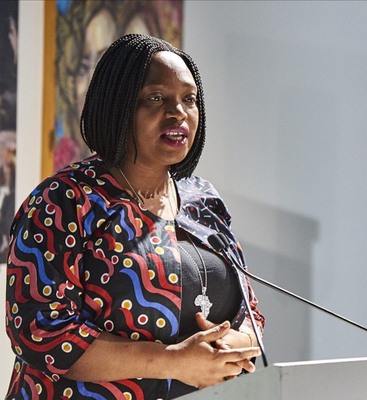By Kyra Gillespie
To mark International Women’s Day, Abiola Ajetomobi, Director of the Asylum Seeker Resource Centre and Pakenham resident, has opened up about her challenges faced, her views on gender equality and what IWD means to her.
– What inspired you to get into leadership and advocacy?
Advocacy for me came out of self, advocating for my needs and that of my family. I was discontent with some of the ways Africans, migrants and refugees are being portrayed by our so-called politicians and media. I wanted to create a different narrative using my own example of how I transitioned from arriving in Australia, surviving the systematic barriers and hurdles; right to thriving. For me the message of hope, courage and resilience in all of this was important to counter the negativity and false perception of the impact people like myself are making in our society. To do this successfully I had to come out of my shell, listen more and take on the responsibility of being a voice to the voiceless and contribute to shaping the future of Australia where by children could thrive and not experience limitation just because of their heritage, background, gender or religion. Leading this way came naturally for me.
-You are now the Director of the Asylum Seeker Resource Centre, have there been any moments where being a woman in a leadership role has proven difficult?
Yes, not only been a woman but a woman of colour. Having to be in a room of power and decision makers where in most cases I’m the only one of my race or gender can be quite intimidating. I’m fortunate to now work in an environment and organisation where my skills, contributions and lived experiences are valued and recognised. I’ve worked previously with employers who have said to me “I’m doing you a favour here that no one else will, no one will risk employing you at this level.“
-What does International Women’s Day mean to you personally?
It means a time to stop, reflect and celebrate the power of womanhood, the invaluable contributions that women have made in our society. It is also an opportunity for us as a community, nation and the world at large to examine how far we have gone in ensuring women have their right place in the world. I often say when this topic gets raised that this is about access not quota, it’s about women being given an equal opportunity to work, study, lead and contribute towards the advancement of our society in a way, shape and form as men do because they have what it takes.
-Do you think we have achieved gender equality? What could we be doing differently?
No, I don’t think so. We’ve talked about gender equality for so long yet we’ve only made incremental progress in some area and none in other areas. The level of unconscious bias that is embedded in our systems and processes is preventing us from being able to progress effectively as a nation in all areas of civil society, government and community at large.
-What advice would you have for other women looking to take on leadership roles?
I’ll say go for it, don’t be discouraged. Don’t give up, persevering is not a weakness, it is strength. Reach out to fellow women in leadership roles for support and mentorship. Leadership is a vital role women can play in shaping the future of our organisations, communities and nation and we should not let systematic barriers and opposition deny us of the opportunity to serve and contribute in our own way.
-Is there a woman, or group of women, that you look up to?
Yes, particularly women of colour who have defied all odds to be where they are today, I call them my crush. Their shameless audacity is attractive and I always like to celebrate them, study them and learn how they overcame their fears, hurdles and societal pressure as well as perceptions to get to where they are today.







